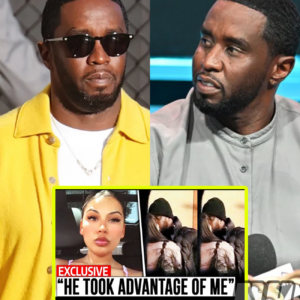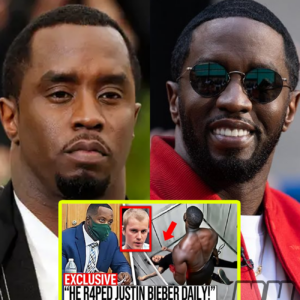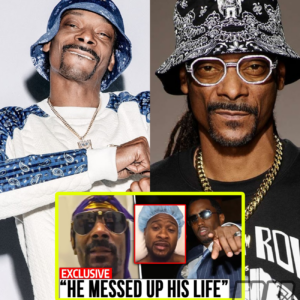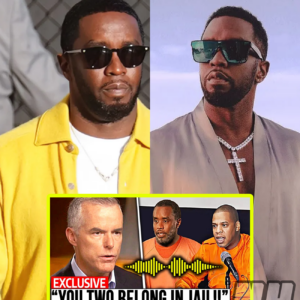The Billionaire Dichotomy: A Psychological Phenomenon Among the Ultra-Rich
In the world of extreme wealth, a peculiar pattern emerges among billionaires. Once individuals amass immense fortunes, often hitting the symbolic nine zeros in their bank accounts, they seem to diverge dramatically in their subsequent actions.
This phenomenon, highlighted by cultural commentator and artist Diddy, can be described as a bifurcation in moral direction: one path leading towards philanthropy and efforts to “save the world,” while the other veers into darker, often unethical realms such as exploitation and criminal activities.

The Dichotomy Explained
This dichotomy raises intriguing questions about human psychology and the impact of vast wealth on behavior. On one side, some billionaires like Bill Gates and Warren Buffet commit significant portions of their wealth to charitable causes, aiming to address global issues like poverty, disease, and climate change. Their motivations seem to stem from a desire to use their resources for the greater good, leveraging their financial power to enact positive change on a grand scale.
Conversely, other billionaires have been implicated in activities that starkly contrast these altruistic endeavors. High-profile cases involving sex trafficking, exploitation, and other nefarious behaviors suggest that the accumulation of wealth can also exacerbate darker human impulses. The recent controversies surrounding figures like Jeffrey Epstein and allegations against various other affluent individuals exemplify this troubling trend.
The Psychological Evaluation Proposal
Given this stark contrast, Diddy proposes a novel solution: mandatory psychological evaluations for individuals who achieve billionaire status. He suggests that when someone’s bank account hits the nine-figure mark, a psychological assessment should be triggered to determine their likely ethical trajectory. This evaluation could potentially prevent those leaning towards harmful behaviors from acting on their impulses by providing early intervention and support.
Diddy’s Own Controversies
Interestingly, Diddy’s insights come amidst his own legal and social challenges. Accusations of sex trafficking, domestic violence, and rape have surfaced against him, leading to a significant fallout. Brands have distanced themselves, and his long-standing business empire appears to be in jeopardy. This juxtaposition of his call for ethical scrutiny and his personal legal battles adds a layer of complexity to the discussion.
The Impact of Reputation in the Business World
In the elite business world, reputation is paramount. Controversies, even unproven ones, can create a ripple effect where associates distance themselves to protect their own interests. Diddy’s situation underscores this, as his associations and partnerships have been affected by the allegations against him. This phenomenon highlights the delicate balance between maintaining a positive public image and the private actions of influential individuals.
The Dual Nature of Wealth and Influence
Diddy’s rise to billionaire status showcases the dual nature of wealth and influence. His journey from edgy rap glamour to a formidable business mogul involved bold moves and strategic partnerships. For instance, in 2003, he boldly approached Mark Cuban, then owner of the Dallas Mavericks, with an unsolicited proposal to design the team’s uniforms, ultimately securing a significant deal. Similarly, his savvy negotiations with Diageo over Ciroc vodka’s branding turned a spokesperson role into a lucrative profit-sharing arrangement.
These actions reflect a shrewd understanding of leveraging celebrity status for business success. However, Diddy’s trajectory also mirrors the broader billionaire dichotomy, where the same drive and ambition that fuel success can lead to morally ambiguous or outright unethical behavior.
The Influence of Mentorship and Networking
Diddy’s relationship with Ray Dalio, a founding member of the world’s largest hedge fund, Bridgewater, illustrates the role of mentorship and networking in the business realm. Dalio’s principles of radical transparency and mentorship sessions with Diddy highlight the importance of guidance and ethical considerations in business practices. Such relationships can be instrumental in steering individuals towards positive contributions, emphasizing the need for ethical mentorship among the ultra-rich.
Addressing Systemic Issues
The billionaire dichotomy also points to systemic issues within the structures of wealth and power. The mechanisms that allow individuals to accumulate vast fortunes often lack adequate checks and balances to ensure ethical behavior. Implementing psychological evaluations, as Diddy suggests, could be one step towards addressing these gaps. However, broader systemic changes, including stricter regulations and greater transparency, are necessary to mitigate the potential for harm among the ultra-wealthy.
Conclusion
The psychological phenomenon observed among billionaires, where individuals diverge into paths of philanthropy or unethical behavior, is a compelling topic that warrants further exploration. Diddy’s proposal for psychological evaluations highlights the need for proactive measures to guide the wealthy towards positive societal contributions. As controversies and legal battles continue to unfold, the importance of ethical considerations in the accumulation and use of wealth becomes increasingly evident. In the quest to harness the potential of billionaires for the greater good, society must balance ambition with accountability, ensuring that the power of wealth is wielded responsibly.
News
(VIDEO) Celebs that P Diddy EXPLOITED for Cash
P Diddy and the Dark Side of the Entertainment Industry The entertainment industry is no stranger to scandal and controversy, but the recent revelations surrounding P Diddy (Sean Combs) have brought to light a web of disturbing allegations and connections…
(VIDEO) Kevin Hart IN TEARS After New Leaks EXPOSE Him At Diddy’s After Parties!!
Kevin Hart: A Complex Journey Through Fame, Scandal, and Personal Growth Kevin Hart, the renowned comedian and actor, has led a life marked by both incredible professional success and deeply personal scandals. His journey from selling sneakers to becoming one…
(VIDEO) “He Ruined My Life” Former Diddy Employees TEAM UP To EXPOSE Him!
The Dark Side of Fame: Allegations Against Diddy and the Revelations from Former Employees The music industry is often glamorized for its glitz and glamour, but behind the scenes, it can harbor dark secrets and troubling behavior. Recently, Sean “Diddy”…
(VIDEO) “He’s Why Justin Bieber Is DEPRESSED!” Undercover FBI Agent EXPOSES Diddy
The Tumultuous History of Snoop Dogg, P. Diddy, and the East Coast-West Coast Rivalry Hip-hop history is fraught with feuds, friendships, and ever-changing alliances. Central to many of these stories are iconic figures such as Snoop Dogg and P. Diddy…
(VIDEO) “Diddy Did Usher Dirty Forever” Snoop Dogg EXPOSES Sean Combs!
The Tumultuous History of Snoop Dogg, P. Diddy, and the East Coast-West Coast Rivalry Hip-hop history is fraught with feuds, friendships, and ever-changing alliances. Central to many of these stories are iconic figures such as Snoop Dogg and P. Diddy…
(VIDEO) Undercover CIA Agent EXPOSES Diddy & Jay Z!
The Fall of P. Diddy: A Dismantling of Credibility and the Unfolding Legal Crisis Introduction In recent years, Sean “P. Diddy” Combs has found himself at the epicenter of numerous controversies and legal battles that have significantly tarnished his once-polished…
End of content
No more pages to load











